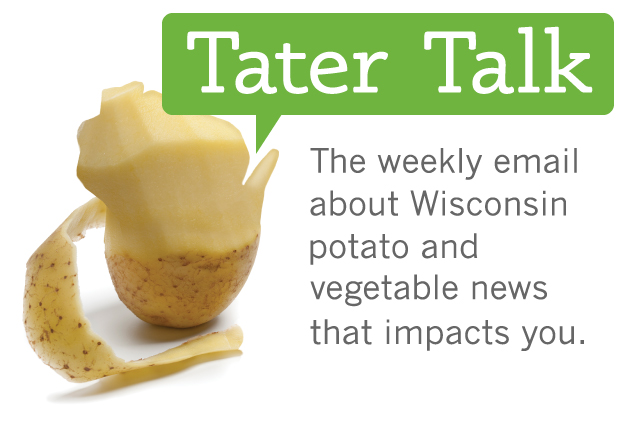Vegetable Growers Pushing Advanced Irrigation and Conservation Practices in Wisconsin
We need to conserve our natural resources to guarantee that they will be there for future generations! We all work to conserve — in our own homes, work places, towns and communities — and we expect our industries to do the same. Irrigated vegetable growers in Central Wisconsin agree and their highest priority is to conserve the water that they rely on to irrigate the crops that supply food to our tables! Below are some comments taken directly from growers in Central Wisconsin that reflect that commitment. Since water conservation is essential for the long term sustainability of the vegetable industry, growers are working to use advanced technologies and best management approaches directly on their farms to maintain these resources.
“Water conservation is important to our farm because we believe in promoting a sustainable environment; both for our farm as a whole and for the community around us.”
“The more water we conserve now the higher availability in the future.”
“Water conservation is important so we don’t …waste ground water which everyone depends upon.”
“We need to be stewards of the resources so we can continue for generations to come.”
“Sustainability is always an important goal on a family farm!”
We’ve all heard the stories of the bad actors in agriculture, especially with concerns over wasting water by irrigating excessively, but these are exceptions and for now, let’s talk about the many positive things growers are doing to conserve water and advance irrigation technologies.
In 2011, growers in Wisconsin recognized the critical importance of conserving water and formed the Wisconsin Water Task Force to address the issue head-on (http://wisconsinpotatoes.com/governmental-affairs/water/). This committee of growers, researchers and innovators within the industry meets monthly to discuss new ideas and approaches, to advance research and develop alternative strategies to help their industry use water efficiently. A key first step was to determine exactly what growers are doing now and establish a baseline to identify where improvements can be made and set goals for continual improvement. So in the fall of 2014, a comprehensive online assessment was conducted to determine exactly what irrigation and conservation practices were being used by WI growers — remarkably, growers stepped up to the plate and in less than a month, data was collected from 90% of irrigated vegetable growers representing 185,375 acres.
Results were encouraging and showed that most growers are already using many practices to conserve water and increase water use efficiencies. For example, 96% of the industry monitors equipment while in operation, and 83% irrigate at off-peak hour to avoid evaporation water loses. Detailed water use application data records are kept for each field by 82% of the industry, and over 62% of the industry maintains these for more than 3 years.
Growers are utilizing many factors to determine when to irrigate and consequently, when not to irrigate, such as 73% precisely balancing the water they apply with the water lost to evaporation and plant use and incorporating multiple factors that can influence that balance. These include crop growth stage (96%), differences among varieties (84%), plant canopy closure (75%) and rooting depth (67%). Almost all (97%) of the industry monitor in-field rainfall and 89% monitor soil moisture in individual fields.
Many in-field and whole farm conservation practices are currently being used by innovative growers, including 60% who are adding organic matter to their fields to increase water holding capacity, 82% limiting compaction to encourage deeper rooting and more efficient water use and 70% planting cover crops to hold water for recharge.
New cutting edge strategies are also being trialed on farms, such as deficit irrigation (24%) used to promote deeper rooting, the use of in-row surfactants (22%) to improve water availability to plant roots and precise mapping of soil types to variably apply water across fields. In all, 19% of growers are actively collaborating with UW researchers to improve irrigation efficiency.
Growers know conservation and efficient water use is vital for their future, and they continue to strive to advance these practices and technologies. For more information, contact Jeff Wyman at ([email protected]) and/or Tamas Houlihan ([email protected]) for details on the water task force and irrigation and conservation efforts.


